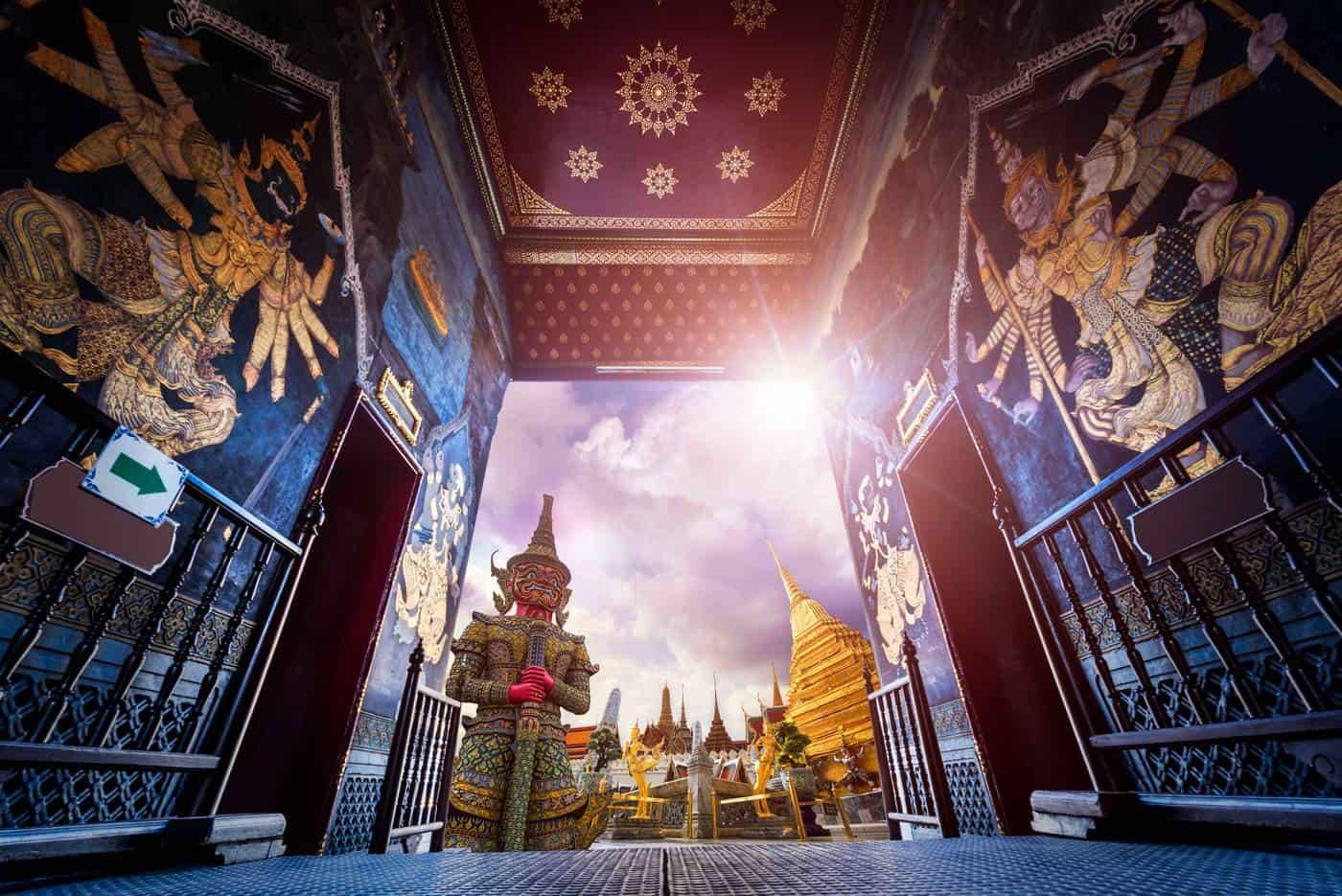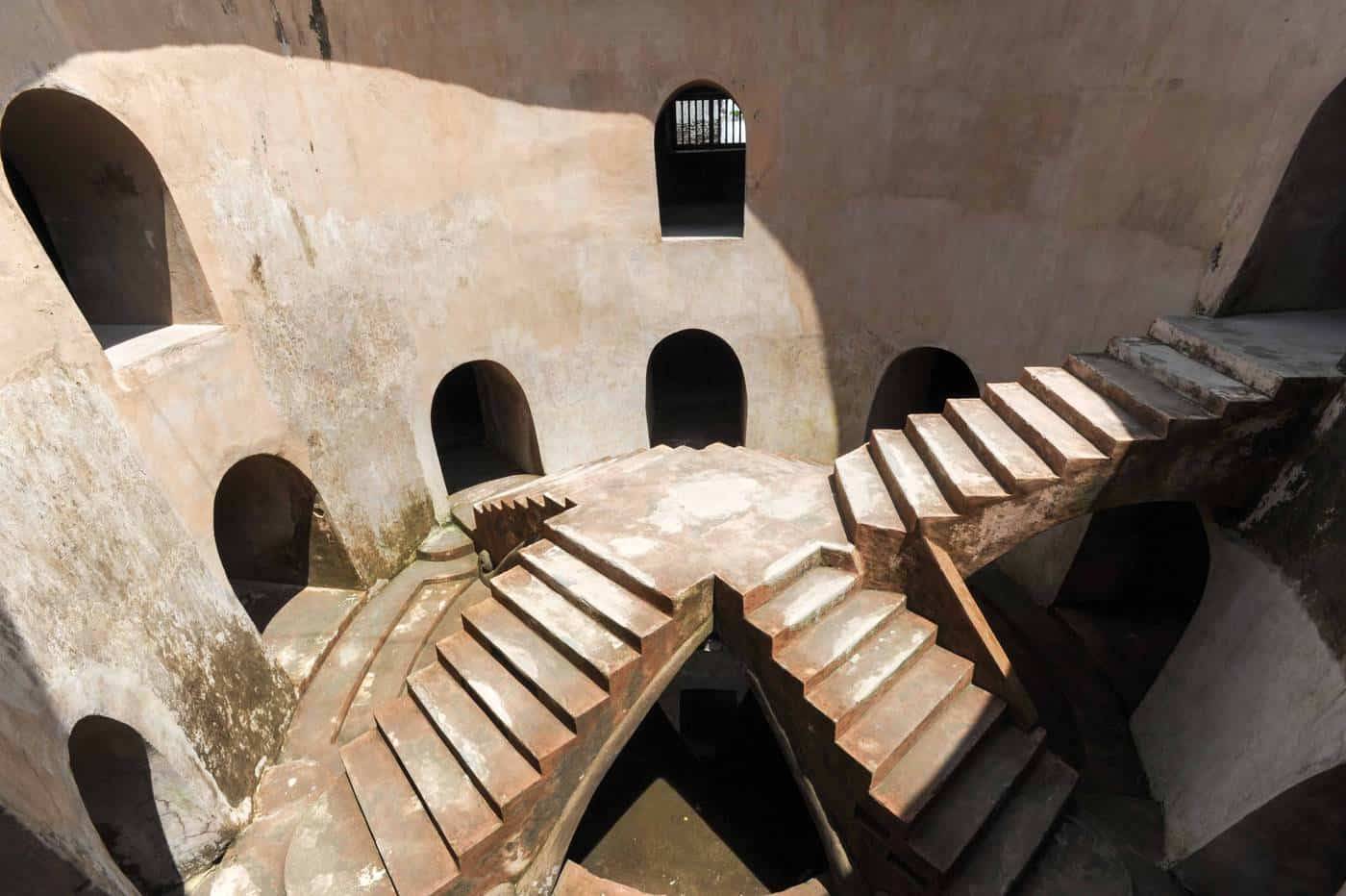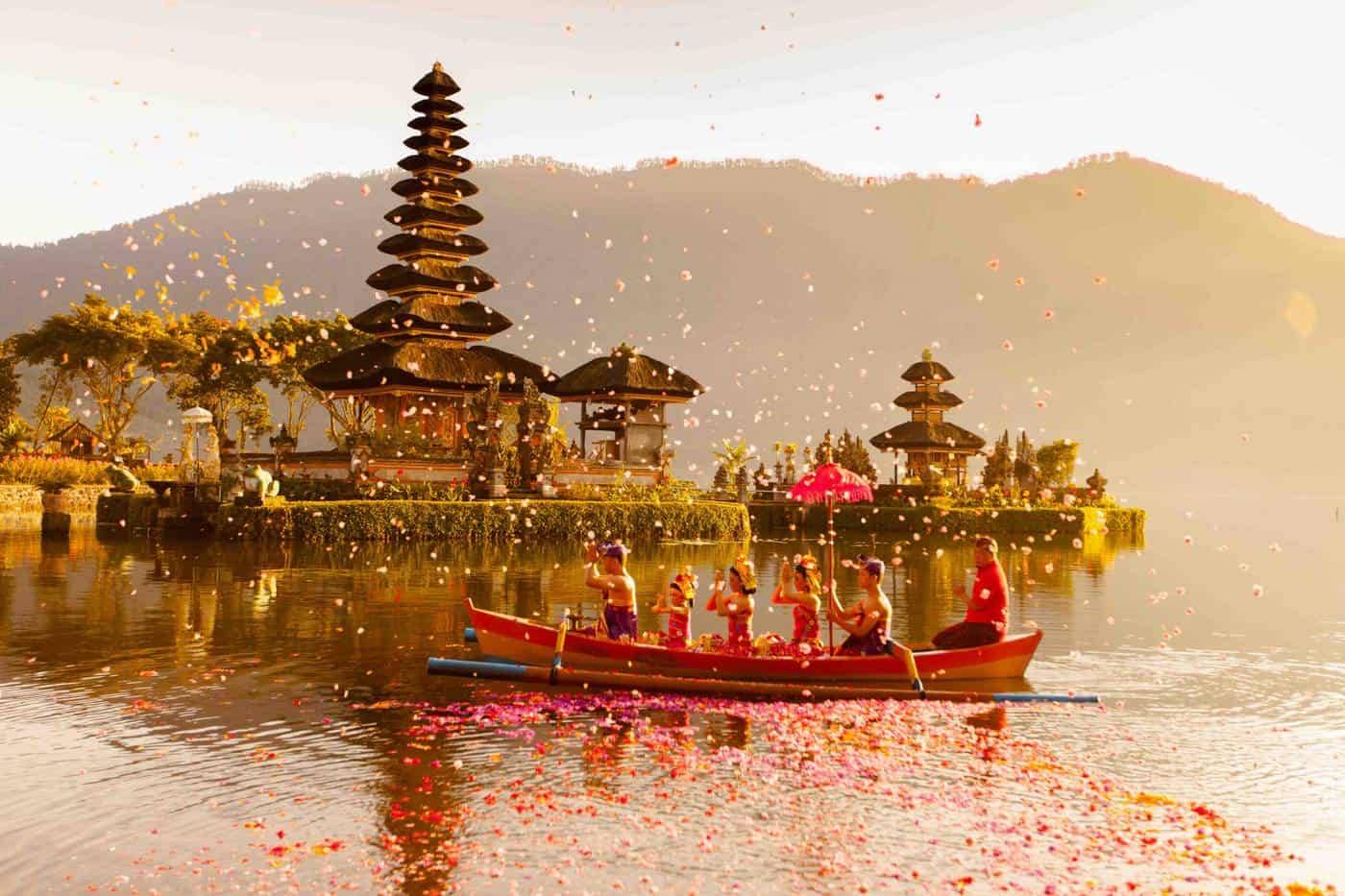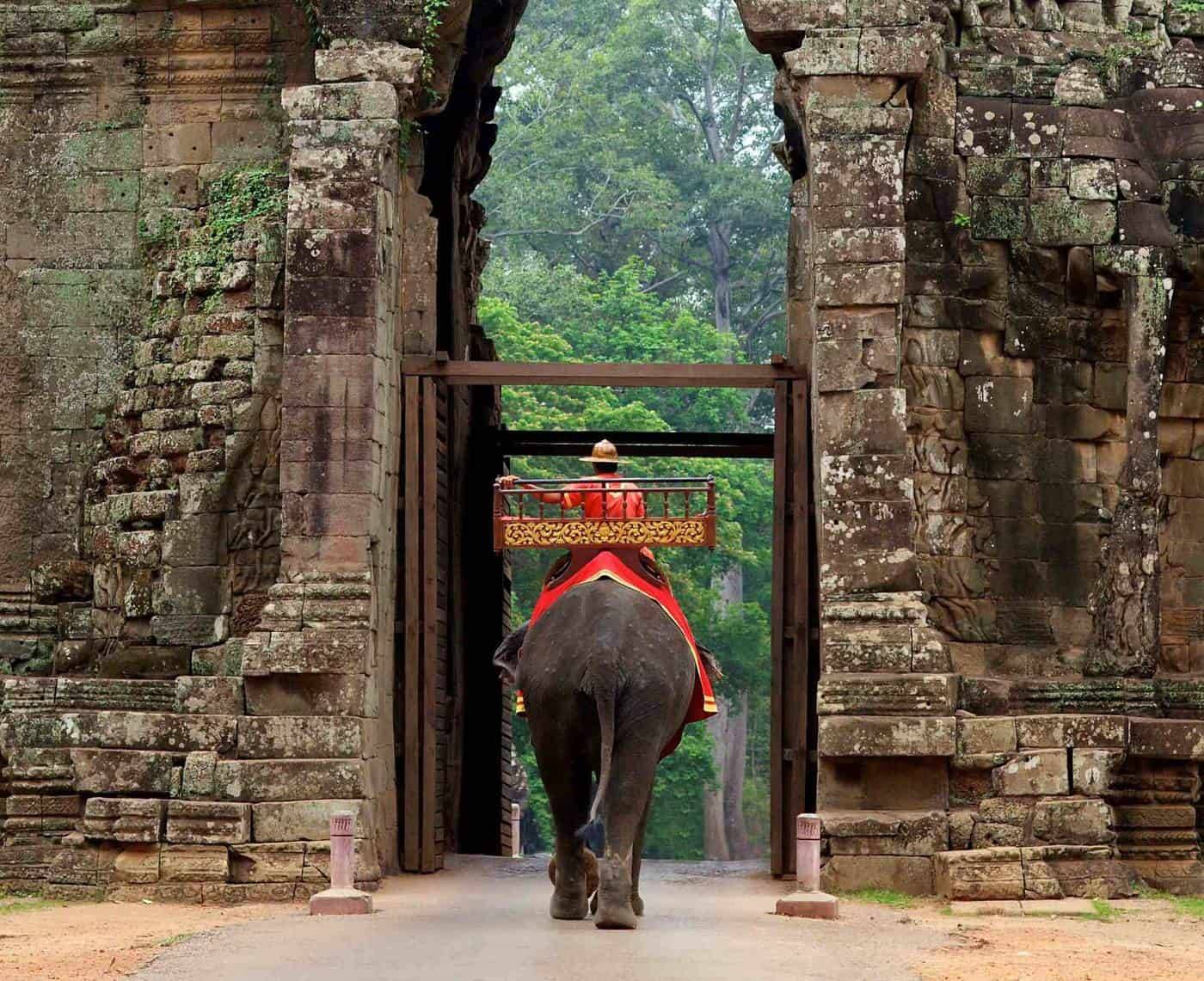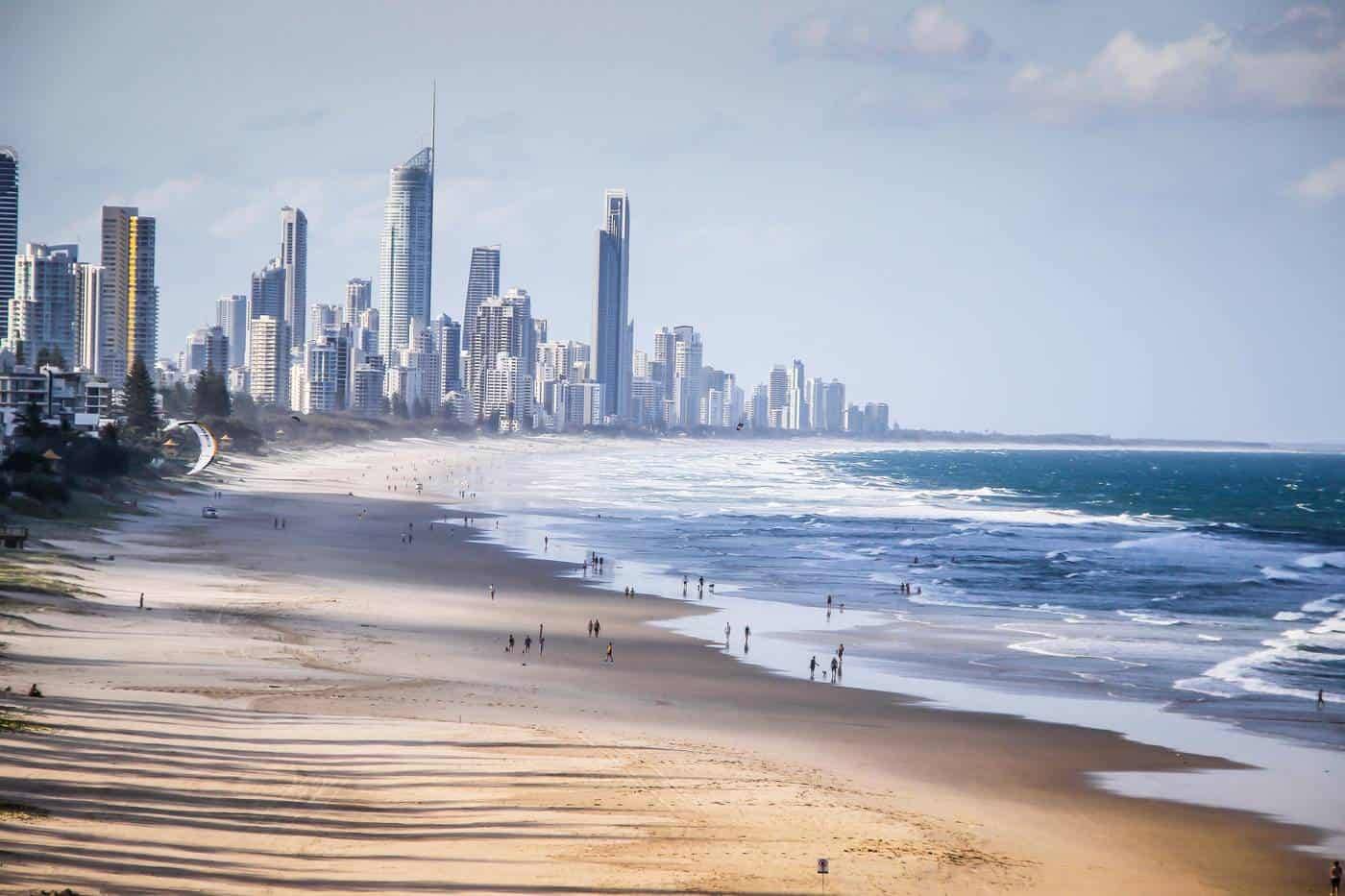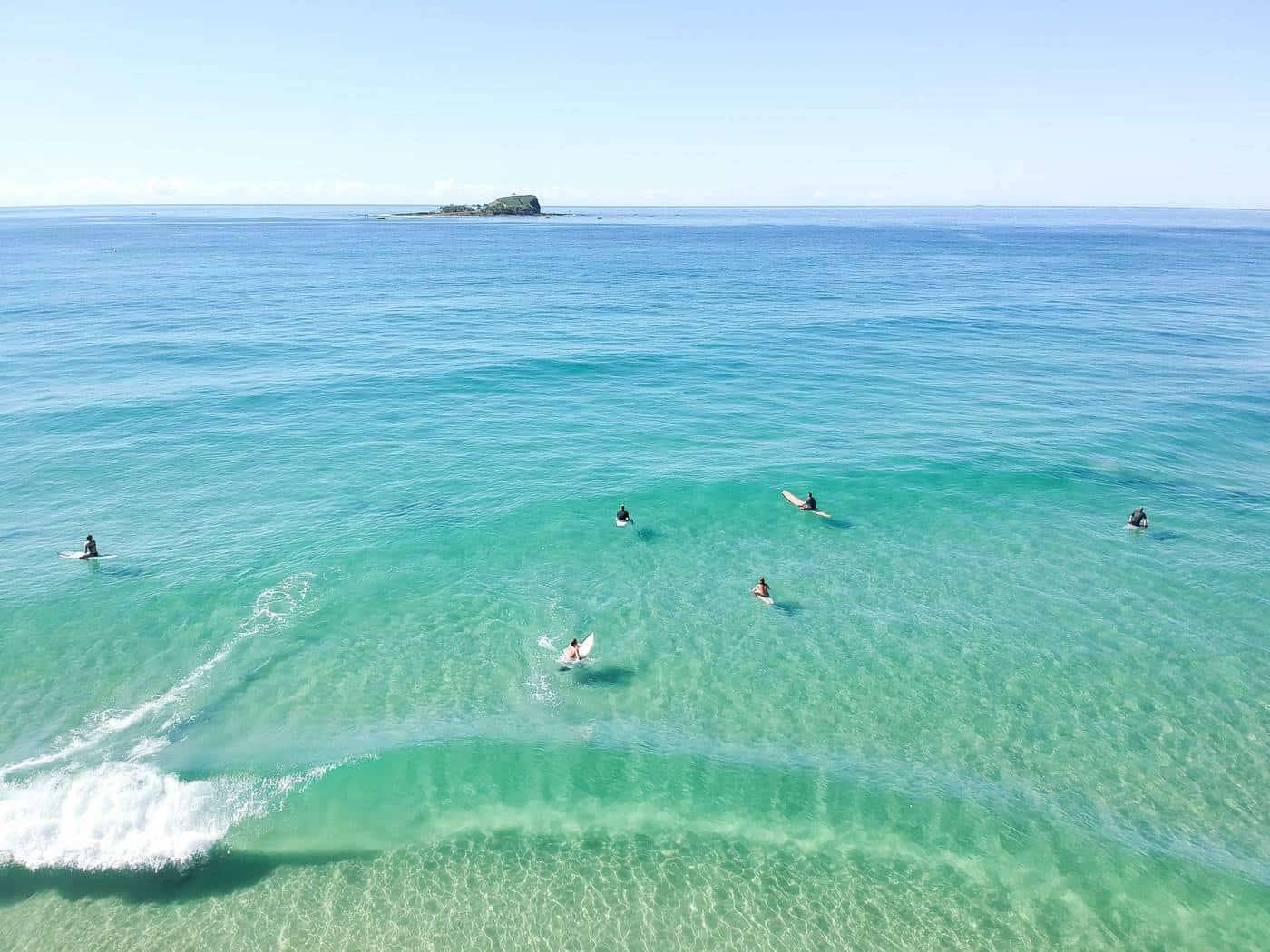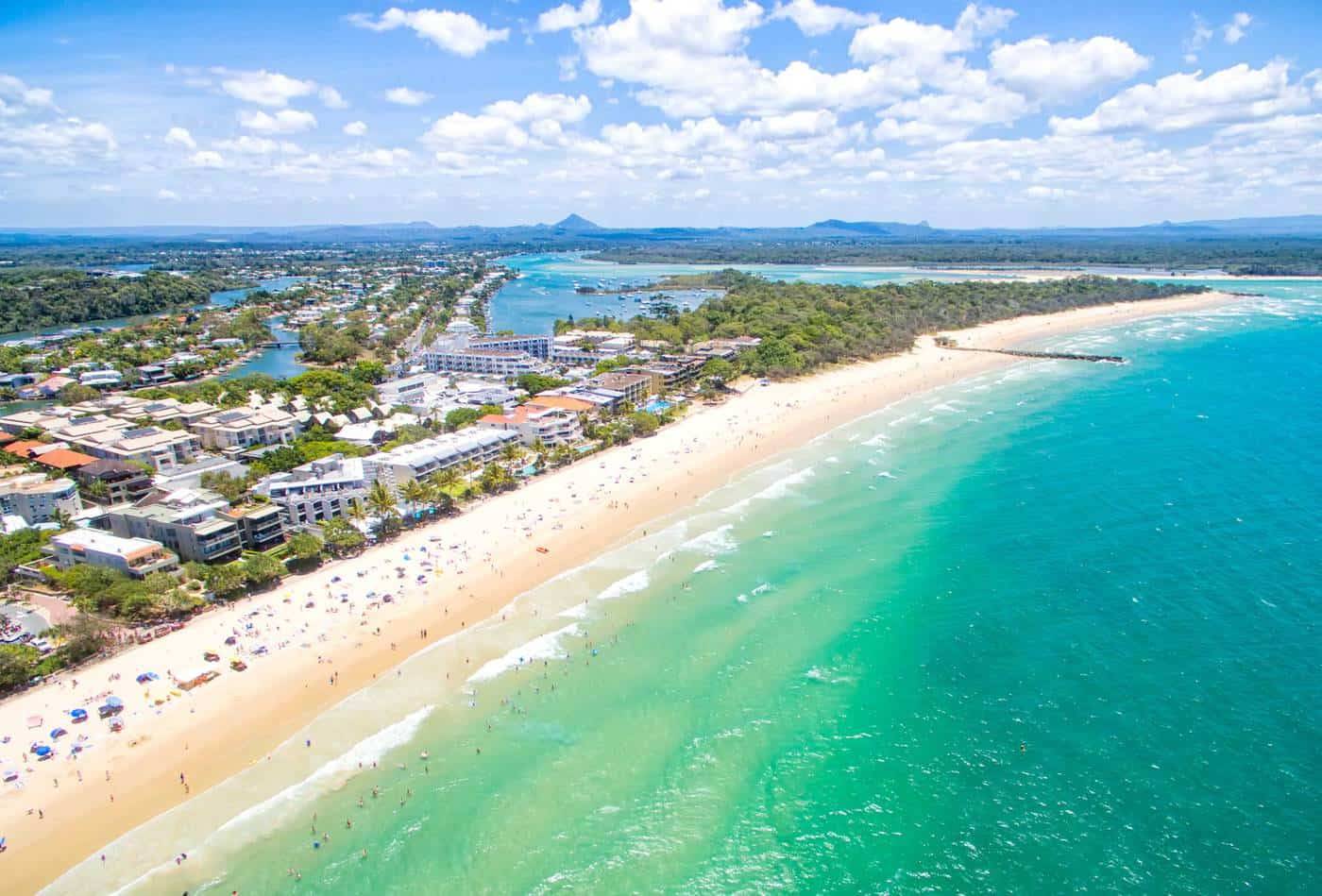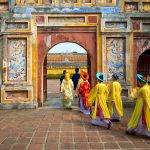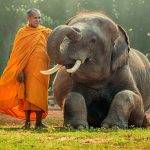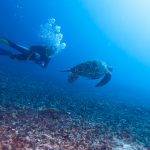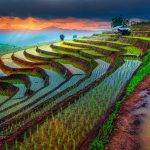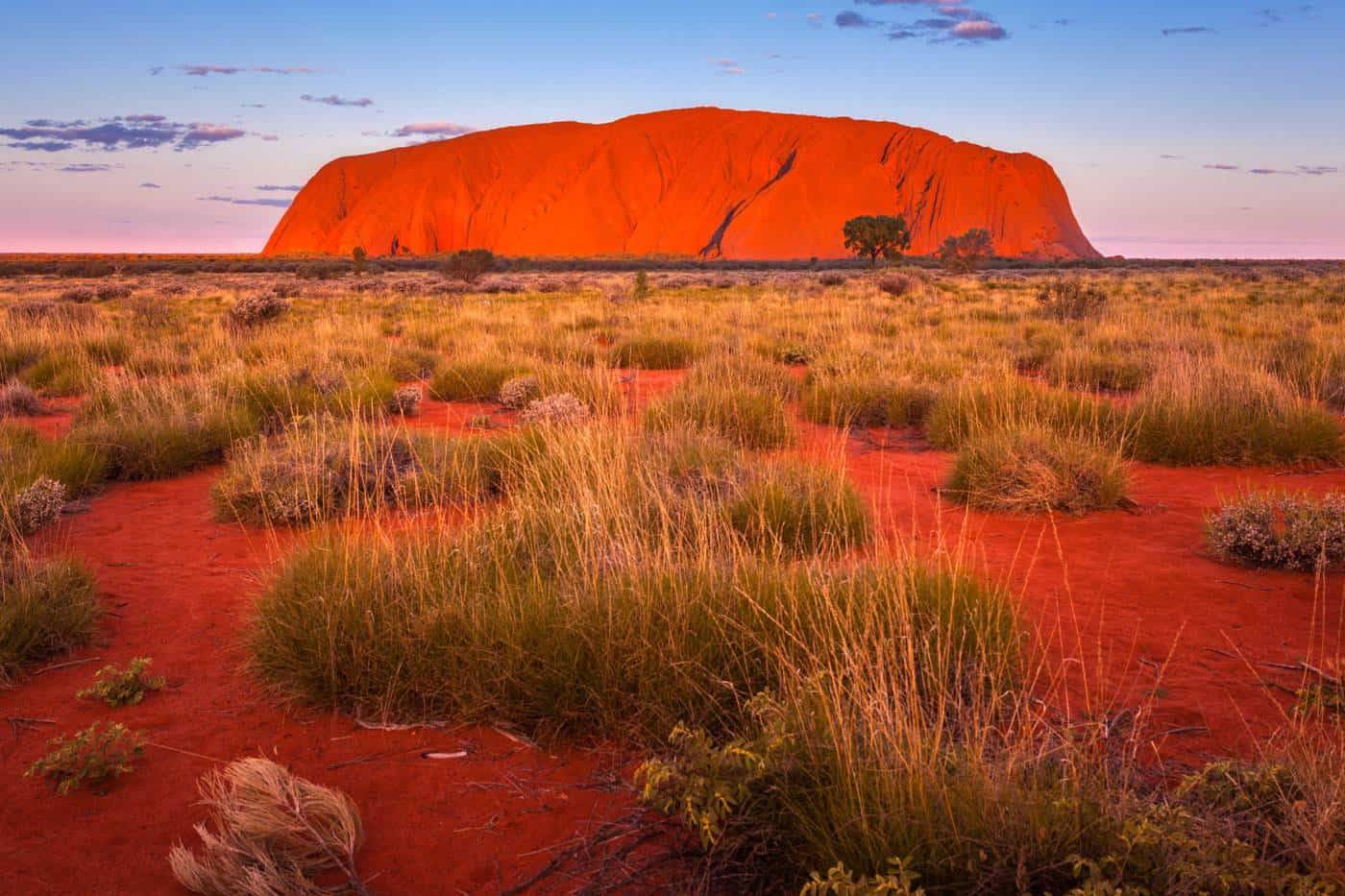
ULURU – THE SACRED ROCK
Halfway between Darwin and Adelaide, halfway between Sydney and Perth, right at the heart of Australia, there is a small remote town called Alice Springs. Thousands of kilometres away from civilisation, still this outlying place is boosting tourism. One will need a few weeks to work their way around all the attractions at ‘Alice’.
ALICE SPRINGS – THE GATEWAY TO ULURU
The backwater town that people knew years ago has changed. No longer at the end of the rail line, no longer isolated by poor communications, and no longer known only to Territorians – today, Alice Springs is the epicentre of tourism in the Northern Territory.

The town itself offers plenty of things to see, e.g. the Adelaide House, Aboriginal Art and Cultural Centre, Aviation Museum, Sounds of Starlight Theatre, Telegraphic Station, Anzac Hill, Todd River, Date Fand Desert Park.
Alice Springs is the main stopover on the Ghan railway that connects Darwin and Adelaide across almost 3000 km long journey through the Australian Outback.
There is lots of cultural and entertainment events held throughout the year and much to do for any traveller. Among the major points of interest in Alice Springs, the star of the show is Uluru.
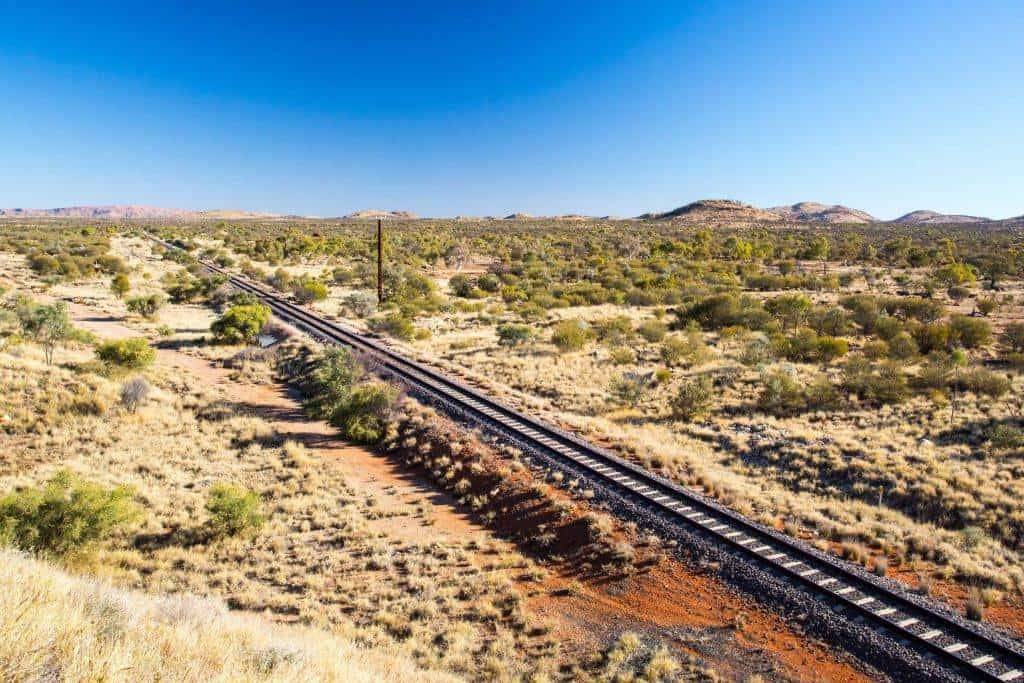
ULURU AND THE OLGAS
Otherwise known as Ayers Rock, the symbol of Australia majestically rises from the surrounding plain, and it is the second-largest monolithic rock in the world. It reaches 863 metres above sea level and measures 3.6 km long by 2.4 km wide, with a circumference of 9.4 km.
The giant monolith, along with The Olgas – another group of 36 impressive red rocks that stand nearby, is a part of the Uluru-Kata Tjuta National Park. The highest dome is Kata-Tjuta, also called Mount Olga (1,066 m).

Uluru (863 m) is formed from virtually vertical layers of extremely hard sandstone, the surface layer of which has become bright red as the result of oxidation. On the north-west and south-east sides, erosion has cut into the rock-forming channels down witch water pours after storms creating spectacular, short-lived waterfalls.
Uluru and Kata-Tjuta both belong to the Anangu Aboriginal people, who manage it in tandem with Parks Australia. The site is deeply sacred to the indigenous people, firstly as a constant source of water in the arid conditions and secondly as a landmark along the Songlines of Anangu culture and mythology.

NOTE
Every year, thousands of visitors attempt to climb the Ayers Rock as the plateau at the summit affords vast views. However, local people find it very disrespectful. On the 26th October 2019, marking the 34th anniversary of the Uluru hand-back, the Uluru climb was officially closed. The 9-km long walk around it leads through various Anangu sites, and it is open to the public.
TRAVEL TIP
For easy access and less driving, it is advisable to stay at Yulara – a small resort township and the starting point to the Ayers Rock. Access to Uluru is by road on a drive-yourself basis (unless arranged a tour) with entry fee payable ($25 AUD/3 consecutive days).
Remember that Uluru is best to be enjoyed at sunset or sunrise when the rock`s changing colours offer a fascinating spectacle.

ALICE SPRINGS AND SURROUNDS
The nearby highlights are places easily accessible by car which can be rented in Alice Springs. For those ones who wish to book a conducted tour, there are plenty of Aboriginal agencies that can help if you wish to learn more about their culture and lifestyle.
Ewaninga Rock Carvings Reserve is probably the best option for those interested in the indigenous legacy. This important archaeological site with Aboriginal rock engravings greets the visitors with its characteristic claypan, sand dunes and rocky outcrops.
Hermannsburg is a small Aboriginal settlement established by German missionaries in 1877.
Rainbow Valley is a conservation area established to protect the unique sandstone formations and the Aboriginal art, artefacts and sacred natural objects. At sunset, as the sun shines on the cliffs of the valley striking rainbow effects come to sight.
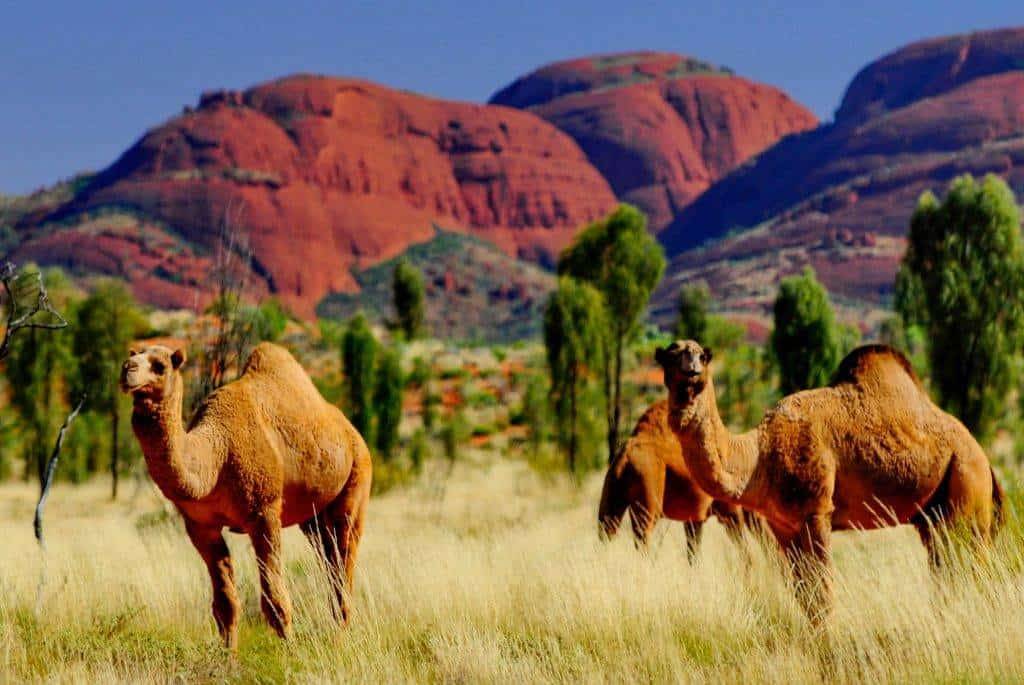
KINGS CANYON
The ancient sandstone gorge is situated in Watarrka National Park, not far away from Alice Springs. Over 100 metres high, with Kings Creek at the bottom, the canyon soars above dense palm tree forest, and it features unique vegetation and wildlife.
There are several walking tracks in the area offering excellent views of the sandstone domes and ravines.
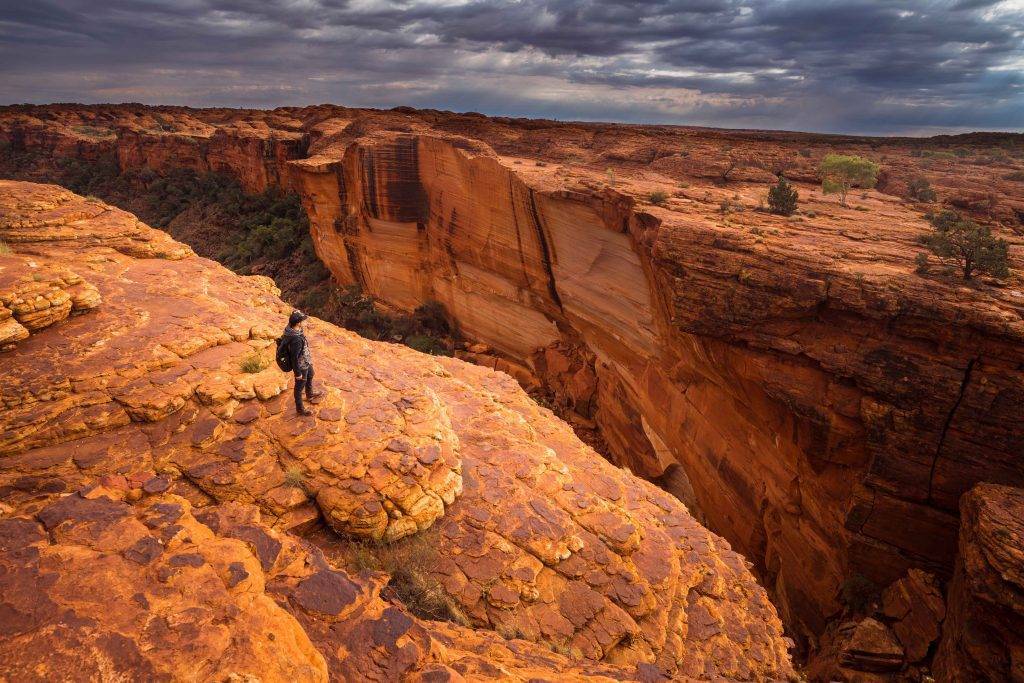
MACDONELL RANGES
Another great outback experience will lead the visitors to the MacDonell Ranges. This lesser-visited area has much to offer – easy access, breathtaking scenery, swimming holes, wildflowers and wildlife spotting. Especially, the camping lovers will enjoy the trip to the full extent. There are numerous campgrounds and hiking tracks in the region.
Glen Helen Gorge is one of the most picturesque gullies in the range, Ross River is well-worth of seeing for its dramatic scenery, and Artlunga Historical Reserve will take you to a complete ghost town with the remains of gold mines, mining camps and stone building.
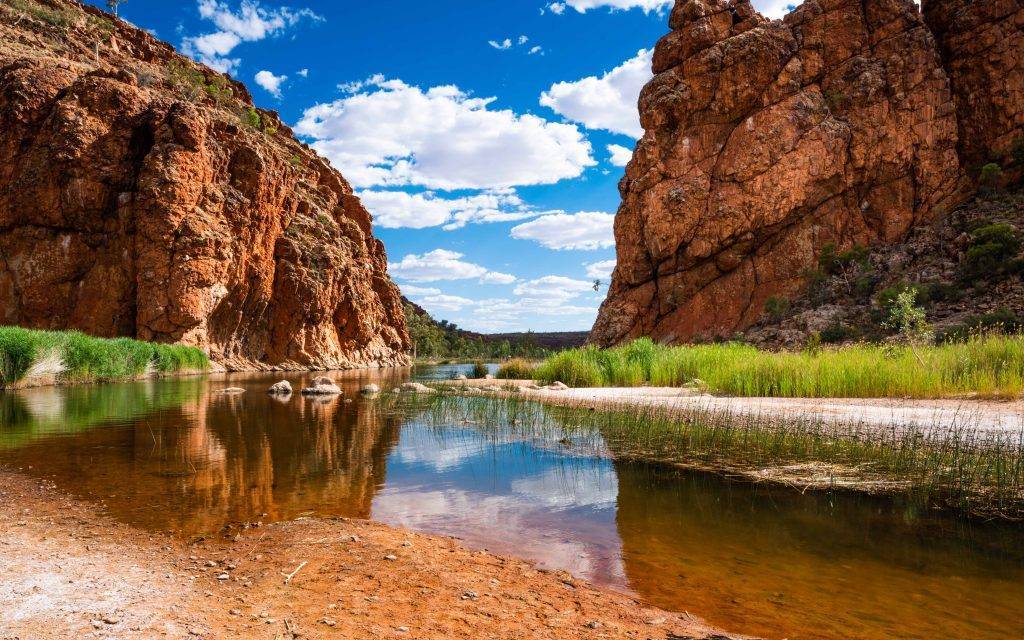
LARAPINTA TRAIL
Larapinta Trail is one of the most iconic Australian trails, that covers 223 kilometres of rugged landscape in the West MacDonnell Ranges. The track has 12 sections, and it is well-marked, it features good amenities, camping facilities and notice boards.
NOTE due to extremely hot summers it is recommended to hike in the winter months (July-September).
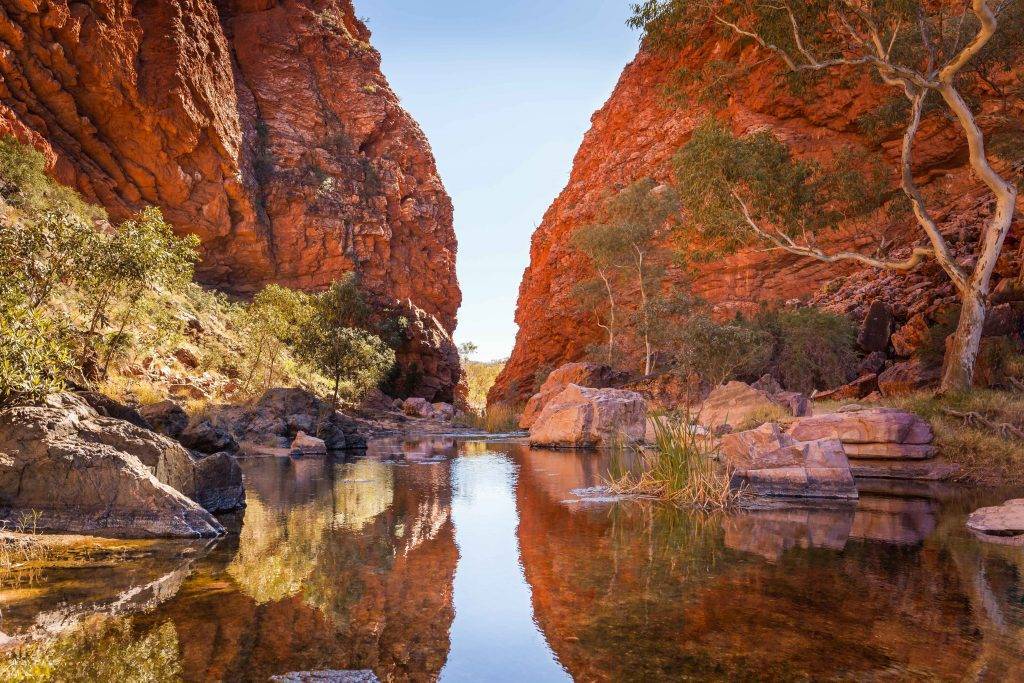
You don`t need to walk the whole walk, though. There are numerous lovely short walks along Larapinta that allow experiencing the raw beauty of the Red Centre:
- Standley Chasm (3km) – a short track that links section 3 and 4 on the Larapinta Trail
- Ochre Pits to Charlie`s Camp (8 km) – a section crossing through the Inarlanga Pass is a wonderful one-day walk
- Ormiston Pound and Gorge (10 km) – spectacular views over Mt Sonder &Gosses Bluff, overnight stay at the Fearless Camp
- Telegraph Station to Wallaby Gap (14 km) – a section that cuts through the Ghan railway, overnight stay at Nick`s Camp

ESSENTIAL EXPERIENCES IN (AND AROUND) ALICE SPRINGS
- Alice Springs self-guided tour – look over the town from the Anzac Hill, see the old telegraph station, check out road trains from the past, study the plants at the desert park
- Alice Springs cultural events – a must-see is the Sounds of Starlight Theatre and the Alice Springs Show (July), the Camel Cup Races (July), or the Henley-on-Todd (September)
- Field of Light – check out the magical art installation by Bruce Munro at Ayers Rock Resort (night time until December 2020 only)
- Aboriginal encounter – learn more about the native Australians and their culture while visiting Ewaninga Rock Carvings Reserve, Hermannsburg and Rainbow Valley
- Riding a camel in Alice Springs – enjoy the authentic desert experience in the land where the last wild camel still roam over the bush
- Sunset/Sunrise at Uluru – watch the constantly changing colours of the Ayers Rock
- Kata Tjuta (The Olgas) – explore the incredible domed red rock formations
- Chambers Pillar – sandstone formation and graffiti at its base, campground available (access via unsealed Old South Road)
- Kings Canyon Rim walk – a 3-4 hr long return walk around the canyon and the views of the gorge below will blow your mind away.
- Finke Gorge National Park – discover a desert oasis with the red cabbage palms in the marvellous Palm Valley
- MacDonell Ranges – get the unique Australian outback experience. Four-wheel driving on the dusty red roads, car-top camping and having a refreshing dip in a waterhole is a must-do when in Northern Territory
- Larapinta Trail – walk a part of the iconic track to admire the remarkable landscape of the Australian Red Centre
- Mount Conner – take a 4WD trip to the Outback and visit the mysterious Mt Conner – most easterly of central Australia`s giant monoliths

NOTE
Travellers are reminded to respect others` beliefs. Some indigenous people believe that capturing the image of a person on a camera steals the spirit or soul of that person. Therefore, always ask for permission before taking photographs of the indigenous Australians.
If visiting Alice Springs to see Bruce Munro`s famous Field of Light, make sure you are not too late – it can be seen every night until December 2020.
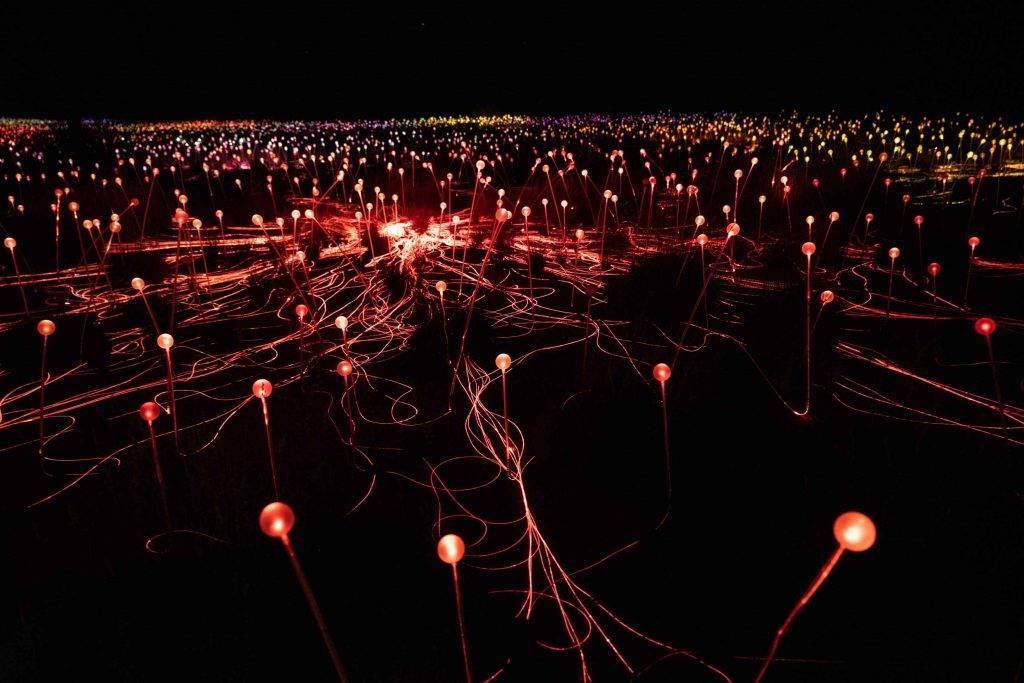
USEFUL TRAVEL TIPS
Drivers are recommended to use a 4WD vehicle, and the car should be in a top condition, especially when taking any of the dirt tracks. Do not underestimate the limited fuel and water supply and the possibility of the vehicle breakdown. Only experienced outback drivers should enter areas marked as hazardous since there is no phone coverage at most of the places.
This part of Australia is highly hazardous and isolated, with harsh, inhospitable country, extreme weather conditions and very limited facilities. The Australian Outback claims about 40 lives a year, and it is clear that this is one of the most unforgiving regions on earth.
Remember that the outback tracks are frequently closed due to various reasons (floods or extreme heat during summer). Hence always check the road conditions at the visitor centre prior to travelling.
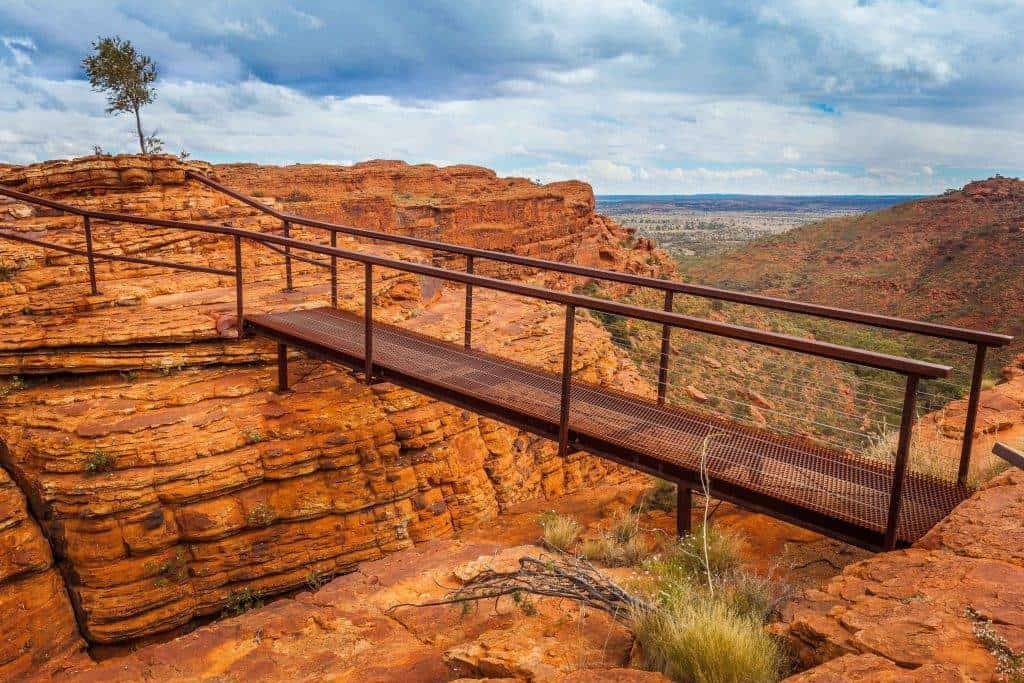
WHEN TO TRAVEL
The Red Centre gets extremely hot summers when the temperature rises to 50 degrees Celsius. For the cooler temperatures, it is suggested to travel between May-September. August is the wildflower season and the best time to travel for photography, especially around Uluru and Olgas. The
Weather in the Outback is very arid, and it is defined by blistering heat, ever-sunny days and freezing-cold nights. Regardless of the season, these two factors will be present all year round.
Now that you have been to Alice Springs, you should check out “the Croc capital of the Northern Territory: Darwin!”
HOW TO GET THERE
Fly to Alice Springs and either take a tour to the spots mentioned above or simply hire a 4WD vehicle and do it yourself.
Alice Springs is well-connected to any Australian city.
For all international flights go to www.skyscanner.com or www.momondo.com
